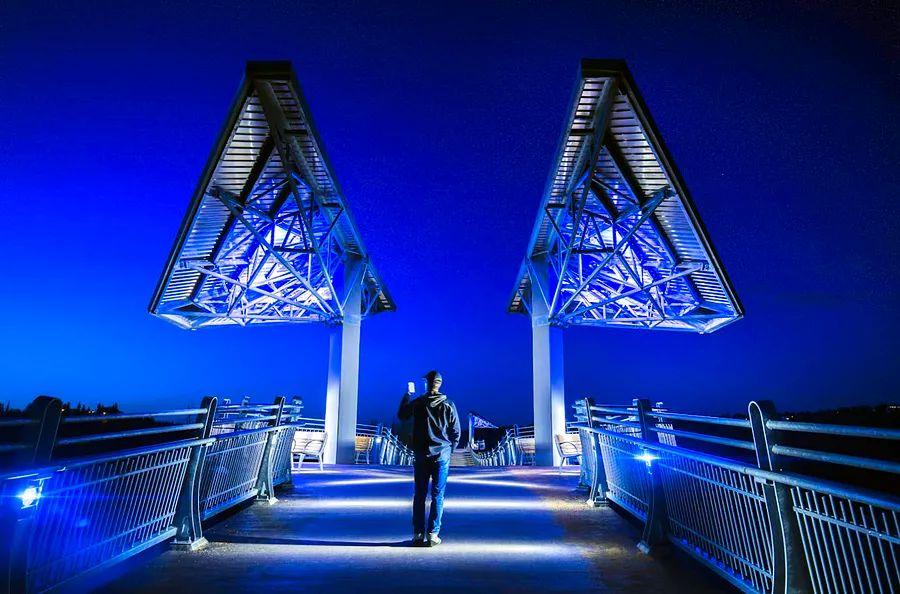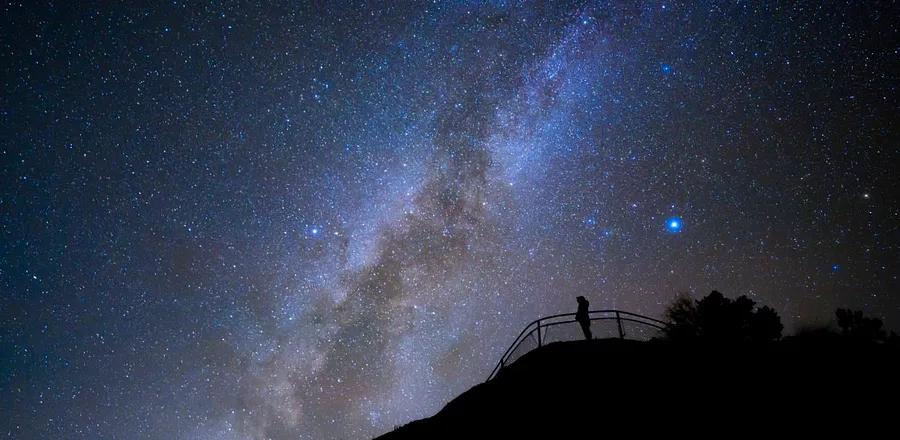Your First Guide to Edmonton, the Capital of Alberta

Edmonton goes big: it boasts Canada’s largest sports and entertainment district, the most extensive urban parkland in North America, the oldest and largest fringe theater festival in North America, and one of the biggest shopping malls worldwide. Beneath this grand exterior lies a lively capital city with a welcoming community and a rich cultural tapestry.
As Canada’s fifth-largest city and the northernmost major metropolis, Edmonton offers so many intriguing spots that planning your visit might feel overwhelming. Where to go? How to get there? How can you truly experience the local culture? This guide addresses those queries and offers practical tips to maximize your first trip to Edmonton.
When is the ideal time to visit Edmonton?
The summer months attract the most visitors – the city enjoys up to 17 hours of daylight daily, with temperatures ranging from 20°C (68°F) to 30°C (86°F). This is also when you can partake in popular festivals, such as K-Days in July and the Edmonton International Fringe Theatre Festival in August. Expect higher accommodation costs during these peak summer months. Winters in Edmonton can be quite chilly, with temperatures typically between -5°C (23°F) and -15°C (5°F), and snowfall occurring from November to March. However, if you enjoy activities like skating, skiing, snowshoeing, and fat biking, winter is an excellent time to visit.
A fall or winter visit comes with the added perk of possibly witnessing the northern lights. The University of Alberta’s Aurora Watch website tracks aurora activity near Edmonton and can send you notifications. Additionally, there are festivals throughout the year, making any time a great time to visit. The Flying Canoë Volant festival is a winter highlight, while the International Children’s Festival in spring offers wonderful family entertainment. You’ll also find that accommodations are generally more affordable during the fall, winter, and spring months.
 Although winter in Edmonton can be chilly, it’s a perfect time to catch the Northern Lights. Visit Elk Island National Park for a spectacular view © Jeff Wallace / Getty Images
Although winter in Edmonton can be chilly, it’s a perfect time to catch the Northern Lights. Visit Elk Island National Park for a spectacular view © Jeff Wallace / Getty ImagesWhat is Edmonton renowned for?
As the gateway to Jasper National Park and the Canadian Rockies, Edmonton is a rapidly growing city with a younger demographic compared to other Canadian locales. It’s often called Canada’s festival city, hosting over 50 festivals each year. Some of its major attractions include the scenic North Saskatchewan River Valley and West Edmonton Mall, which is the largest in North America. Additionally, Edmonton is passionate about sports, being home to the Edmonton Oilers NHL hockey team and the Edmonton Elks CFL football team. The city was once affectionately known as the “City of Champions” in tribute to its sports teams.
Is it easy to navigate Edmonton without renting a car?
While a rental car is the most convenient way to explore Edmonton, you have many alternatives. The city features a reliable public transit system, including buses and Light-rail Transit (LRT). Additionally, options like Uber, taxis, and bike rentals are available. If you prefer walking, Edmonton is quite walkable.
How long should I plan to stay in Edmonton?
To fully enjoy Edmonton, aim for at least two or three days. While this won’t allow you to see everything, you will be able to visit many key attractions. With just one day, you can fit in one or two sites. Exploring West Edmonton Mall could take an entire day, but you might also visit two smaller attractions. With three days, consider checking out nearby spots like Elk Island National Park, the Ukrainian Cultural Heritage Village, or Métis Crossing.
 Edmonton hosts around 50 festivals each year, including the K-Days Festival © NurPhoto / Getty Images
Edmonton hosts around 50 festivals each year, including the K-Days Festival © NurPhoto / Getty ImagesWhat is the estimated budget for a trip to Edmonton?
Edmonton is quite affordable compared to many other cities. Accommodation prices can fluctuate based on location and season, with downtown options typically being pricier. You can snag some good deals by booking in advance and steering clear of peak travel times. While major attractions may charge significant entry fees, there are numerous free festivals and activities to enjoy. Great farmers markets and picnic areas are available if you want to enjoy excellent local cuisine on a budget.
Here are typical daily expenses during peak season (in $CAD):
Hotel in downtown $150-375 per room per night
Private double room in a hostel $65 per night
Coffee (Tim Hortons or similar) $2
Entrée at a midrange restaurant $25-35
Glass of wine $8-10
Museum entry $14-21
Public transit single fare $2.75 within Edmonton, $5 from the airport
Taxi from Edmonton airport to downtown $62
What local dishes is Edmonton famous for?
One of the joys of traveling is exploring local cuisine. Green onion cakes found their way to Edmonton in 1978, thanks to Siu To, an immigrant from northern China, who began serving them in his restaurants. These crispy, pan-fried pancakes filled with scallions have a chewy center and are so cherished that many advocate for them to be recognized as Edmonton’s official dish. You can find them at various restaurants and festivals, but for the authentic experience, visit the Green Onion Cake Man restaurant.
Other must-try dishes include perogies, donairs, and Alberta beef. With a large Ukrainian and Polish population, Edmonton boasts some fantastic restaurants that prepare fresh perogies daily. Visit Uncle Ed's Ukrainian Restaurant, Taste of Ukraine, Shumka Ukrainian Foods, or Widynowski's Sausage House to sample these delights. Then there’s the donair, a uniquely Canadian dish akin to a Greek gyro, featuring seasoned, shaved rotisserie beef, fresh veggies, and a special sauce wrapped in pita. Edmonton is home to over 120 donair spots, including Marco's Famous, Swiss Donair, and Top Donair, all worth a visit. Lastly, Alberta is renowned for its beef—there are more cattle than residents—so enjoy this local delicacy at various restaurants.
 Make sure to try Edmonton's iconic green onion cake © Wajeeha Siddiqui / Getty Images
Make sure to try Edmonton's iconic green onion cake © Wajeeha Siddiqui / Getty ImagesTop dining spots in Edmonton
Edmonton’s culinary scene is a destination in itself. Always changing and vibrant, it features an array of exceptional bakeries, ice cream parlors, restaurants, breweries, pubs, and bars. For breakfast or brunch, visit The Sugarbowl for treats like fresh cinnamon buns, huevos rancheros, and Belgian waffles. Duchess Bake Shop is the city's renowned French bakery, famous for its exquisite macarons, tarts, croissants, and éclairs. Don’t miss Farrow Sandwiches, celebrated for its unique sandwiches, freshly brewed coffee, and delectable baked goods.
Edmonton is home to a thriving small-batch ice cream scene, with outstanding shops such as Made by Marcus, Kind Ice Cream, and Yelo’d. For exceptional local prairie cuisine featuring Alberta beef from an on-site butchery, head to RGE RD. For shareable Asian-inspired dishes, check out Baijiu, a stylish cocktail bar housed in a historic building. Don't miss a tour at Monolith, one of the few breweries in North America producing barrel-aged beer. For cocktails and late-night bites, Fu’s Repair Shop and Bar Clementine are must-visit spots. For a broader taste of the city, consider a food tour with Alberta Food Tours.
Explore Edmonton’s must-visit attractions
Edmonton offers a variety of iconic attractions. You can't miss West Edmonton Mall, the largest shopping and entertainment complex in Canada, featuring over 800 stores, a water park, a theme park, and much more. The Royal Alberta Museum is the largest in Western Canada and perfect for exploring history. Discover 6,000 pieces of art from Alberta and beyond at the Art Gallery of Alberta. Experience Canada’s national winter sport at an Edmonton Oilers hockey game at Rogers Place. Catch a performance by the Edmonton Symphony Orchestra at the Winspear. The Citadel Theatre is the premier venue for live theater in the city. Just outside Edmonton, Elk Island National Park offers hiking, canoeing, wildlife watching, and more, home to herds of bison, elk, and over 250 bird species.
 The North Saskatchewan River Valley borders the city and is packed with opportunities for outdoor adventures © Hadi Zaher / Getty Images
The North Saskatchewan River Valley borders the city and is packed with opportunities for outdoor adventures © Hadi Zaher / Getty ImagesMy favorite activity in Edmonton
I enjoy wandering through the North Saskatchewan River Valley, affectionately known as the Edmonton River Valley by locals – a true treasure of the city. Experience a complimentary ride on the 100 Street Funicular and set off on an exploration of North America’s largest expanse of urban parkland, an area 22 times larger than Central Park in New York City. Within the river valley, there are 20 major parks, numerous attractions, and over 99 miles (160 km) of trails to traverse, whether running, biking, snowshoeing, cross-country skiing, or on a guided Segway tour; use this useful trail map for guidance. For Segway tours, mountain bikes, stand-up paddle boards, and other gear rentals, River Valley Adventure Co is your go-to spot.
If you’d rather enjoy the water, rent a canoe or kayak and paddle along the North Saskatchewan River. Rentals and shuttle services are offered by Edmonton Canoe.
Download the free app to enhance your journey along the six-mile (10 km) Edmonton Commonwealth Walkway and listen to one of five themed audio tours: Indigenous, history, family, river, and winter. The Edmonton River Valley features numerous attractions, including Snow Valley Ski Hill, Snow Valley Aerial Park, Fort Edmonton Park, the Edmonton Valley Zoo, Muttart Conservatory, and the John Janzen Nature Center.
Join in the festivities in Canada’s festival capital
You could easily design your entire visit around Edmonton’s vibrant festival scene. Known as Canada’s Festival City, it hosts over 50 festivals each year, celebrating everything from arts and culture to music, food, and LGBTQIA+ pride. Check the Explore Edmonton event calendar for activities happening during your stay. Notable summer festivals include the Edmonton International Fringe Theatre Festival, Edmonton Heritage Festival, Edmonton International Street Performers Festival, Edmonton Folk Music Festival, K-Days, Edmonton Pride Festival, and Cariwest. In winter, enjoy events like Flying Canoe Volant, Silver Skate Festival, and Deep Freeze to brighten up chilly days.
Explore the Indigenous heritage of Alberta’s capital
Edmonton is situated within Treaty No. 6 territory and the Métis homelands, specifically the Métis Nation of Alberta Region 4. It boasts the second-largest urban Indigenous population in Canada, providing many opportunities to learn about Indigenous culture. The Indigenous People’s Experience at Fort Edmonton Park offers a multi-media journey showcasing the stories and cultures of the region's Indigenous Peoples. For an authentic perspective, consider a tour with Talking Rock Tours. Additionally, visit Métis Crossing, an 80-minute drive northeast of Edmonton, to delve into Métis culture and partake in activities like canoeing in a voyageur canoe and wildlife tours to observe a sacred white bison.
Continue crafting your Alberta adventure:
Explore the remote beauty of Banff and Jasper’s finest backcountry lodges Enhance your itinerary with Canada's top experiences Gain insights with 12 local tips for your Canadian journey Plan your trip effectively by learning the optimal times to visit Canada

1

2

3

4

5
Evaluation :
5/5